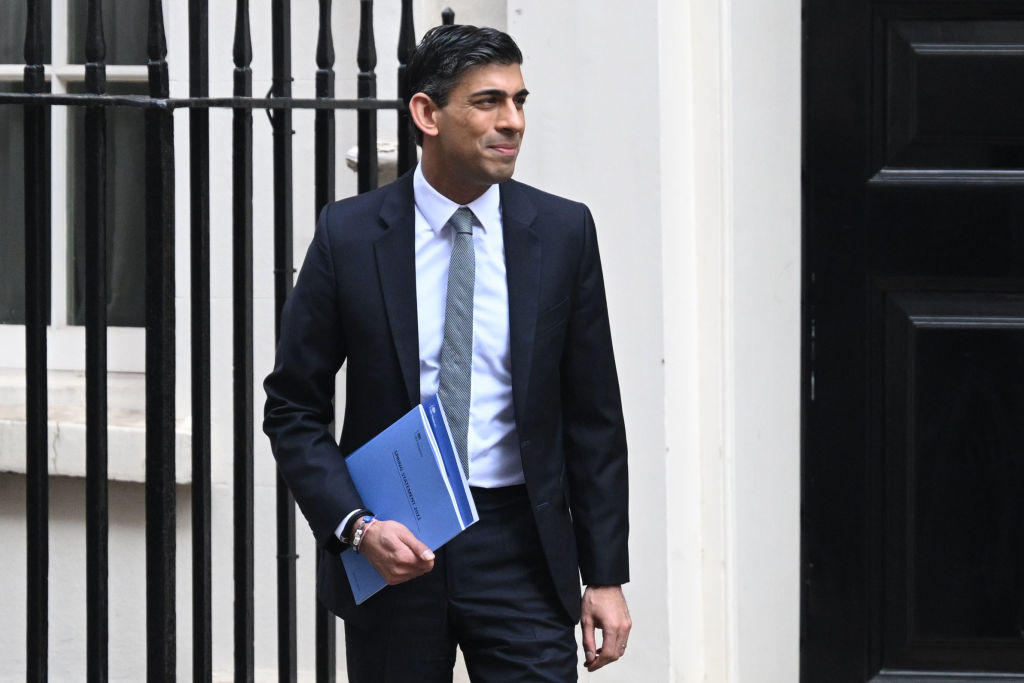Sunak gives with one hand and takes with another to paint a positive veneer

LAST week’s spring statement—the chancellor’s mini-budget, and a significant opportunity to lay out priorities and plans—was a big event for Rishi Sunak. While Covid cases persist and people are still dying, there is a broader feeling that the pandemic is now under control, and that the country can now think about moving into a post-virus phase.
It is also roughly the halfway point of the 2019 parliament, if it runs to the full five years it is allowed, and so politically attuned minds have turned towards the next election. The chancellor’s position was circumscribed by the vast burden of debt which tackling Covid-19 has built up; as a nation, we now owe more than £2tn (more or less our yearly GDP). Yet the right wing of the Conservative Party want to be reassured that he is a small-state, low-tax Tory, and he knows that he may need their support at some point in the coming years.
The selling of the spring statement has been far from a success. While it was embodied by a photo opportunity of the chancellor, shirt sleeves rolled up, filling a car which was plainly not his with petrol, Sunak could not hide the fact that living standards are set to fall more quickly than since the 1950s, inflation is rising, growth is projected to slow and a cut in income tax could only be promised for 2024 rather than delivered straight away.
No politician, however, willingly accepts or recognises defeat. If failure is not an option, Sunak and his Treasury team must find new ways to define success. In other words, how will he track the progress of the UK economy between now and the next election? What metrics can he introduce to suggest an upward trajectory, one which attract electoral support, and how useful will these be in the “real” world of economics and finance?
The chancellor has already clothed his message of “jam tomorrow” in the garb of fiscal prudence and responsibility. “Tax cuts must be paid for, they must be prioritised and they must fit the economic circumstances of the time,” he told the House of Commons, like a strict but benevolent housemaster. He will use the cut in income tax from 20 per cent to 19 per cent as a headline figure to prove that the Conservatives are the party of low(er) taxation, and it is a general tax with broad appeal.
This will have to be a distraction to take attention away from the rise in national insurance contributions. The planned rise, while only 1.25 per cent, will hit those at the lower end of the pay spectrum more severely. Sunak has tried to soften that blow: the threshold will rise to £12,570, the money is, he says, earmarked for health and social care.
Nevertheless, incomes will fall, if only slightly, for those earning more than £40,000 a year as a result of this increase in contributions, and that is still a slice of the electorate whom the Conservatives will wish to court. In addition, the idea that the extra income will be directly used for funding health and social care is dubious: “ring-fencing” in government rarely works, not least because the Treasury is the most cupiditous and capricious of departments.
Like any savvy politician, Rishi Sunak will choose his statistics carefully. When he delivers his pre-election verdict on the economy, he will pick the highest point of debt and taxation, the lowest point of growth, and track progress in the appropriate direction. Although his work will be cut out for him, do not be surprised to see at least a thin veneer of optimism laid over the underlying indicators, polished to a high sheen in pursuit of a new electoral mandate.
The figures will still tell a bleak story, however. Inflation will be uncomfortably high, the cost of living noticeably increased. Our debt will remain a forbidding giant of a mountain running to trillions of pounds; the state will continue to consume somewhere around 37 per cent of our GDP, and spend over 40 per cent of our national wealth, rates which are difficult to swallow in peacetime.
It will take more than massaging the statistics and whistling a happy tune to convince us that Rishi Sunak is the small-state, low-tax chancellor he wants to be—or appear.